I know I write all the time about the powerful and perilous ways that Grace reminds me of myself, about how she seems to have a core of sensitivity, emotion, insecurity, and sentimentality running through her that I intimately recognize. Similarly, I’ve written before of Whit’s predilection towards lightness, his surprising humor, his lack of instinctive subservience to authority. I wouldn’t blame any of you for feeling I’m a one-note violin on this score.
Never let it be said, however, that these children rest in their neat categories. Tonight, after reading several pages of Star Wars Heroes (another post: the Jedi emphasis on controlling your emotions – I’m fascinated that this may be taking real hold of the minds of our young boys, given the wild passion for Star Wars), I tucked Whit into bed. He was unusually clingy, consenting to snuggle in my lap while I rocked him, listening to a lullabye, a tradition that is all but gone now. I kissed him good night and went downstairs to read Harry Potter to Grace.
A page or two into the terrifying scene at the Quidditch World Cup where the Dark Mark hovers over the eerie forest (Grace: “Mummy! I’m scared! Can I hold on?” = her gripping my upper arm with two hands, so hard she left white finger marks) I heard Whit’s door open and his snuffling, tearful voice. “Mummy?” he called plaintively. “Yes, Whit?” “I’m sad.” I asked Grace if it was OK for me to go check on her brother and (surprisingly) she agreed easily.
Whit was in the bathroom. Looking at the floor, he kicked at the tile by the tub idly. He said, without looking at me, “I don’t want to talk about it.” “Oh, Whit, please?” He looked at me and dissolved into more tears. I picked him up and carried him back to the rocker. He was limp in my arms, his tearful face nestled wetly against my neck.
“Whitty, what’s wrong?” He was crying hard, speaking in short bursts between his hiccupy sobs. “I don’t want to be a kid, Mummy. It’s hard to be a kid.” “I know, sweetheart, I know.” “Mummy, I want to be a baby still.” We launched into a fairly detailed conversation about how he didn’t want to grow up and it was all going too fast and he wanted to still be a baby and be carried around. I was somewhere between shocked and blown away. Has he been reading my blog? Reading my mind?
Grace tiptoed into Whit’s room and he let her come over and stroke his hair back from his forehead. He looked right at her and told her why he was sad. “Oh, Whit, I know that feeling. I get sad about that too,” she said sincerely. What? Do my children feel the same contraction and expansion in their chests that I do, that same echoing sadness that seems to pulse with the closing of each moment?
I thought about how their bodies seem to be longer and leaner every single day; a similar growth must be happening in their hearts and spirits. That growth, sudden, overwhelming, must be scary and disorienting. I thought fiercely: I always want them to be able to talk to me about this.
Blinking back my own tears, I took the children on a quick tour through their babyhoods. I showed them the tiny hats they had each worn in the hospital, the doll-sized newborn diapers (I saved a couple of clean ones), the plastic bracelet I wore during each labor & delivery stay. Whit dug deep into his sock drawer to unearth a pair of 3-6 month socks with robots all over them. “These were mine, right, Mummy?” he asked urgently. He wore them to bed tonight.
We then went to the family room and leafed through the two photo albums that covered the first nine months of Whit’s life. He alternated between giggling and crying as we pored over the pictures. One in particular, of him lying on the floor, curled up, asleep, still a newborn, he exclaimed, “I think that’s on this very rug, Mummy!” He was right. He looked at the rug with an expression in his eyes that I recognized deeply: this place, here, was there, then, and it’s here now, and it’s the same and yet not… where did that moment go? Is it here? How could it not be here?
We talked some about how it is normal to feel sad sometimes about things that are over. About how it is hard to be a kid. Also, about the things that they can do now that they couldn’t when they were babies (Storyland, playdates, pizza, scootering, TV). Whit wisely said, “But I didn’t know about those things then, so I didn’t care that I couldn’t do them.” Hard to argue with that.
I finally got both my children settled and on their way to sleep, but now I sit here, lost in memories of those years of new babies and new horizons. I was a different person then, something I was reminded of when I saw the pictures with Whit as a newborn. I’m aware, as I am often, of the ways that minutes and hours and days add up to years, but with very irregular contents. The days stretch like taffy, sagging in the middle, the moments crystallize like glittering gems, the years pile up haphazardly, and what is built is a life.
Parenting – life itself! – is an endless alleluia* and a constant goodbye.
And, I am 100% biased, but I admit that tonight’s little exercise reminded me of how utterly adorable I thought Whit was as a baby.
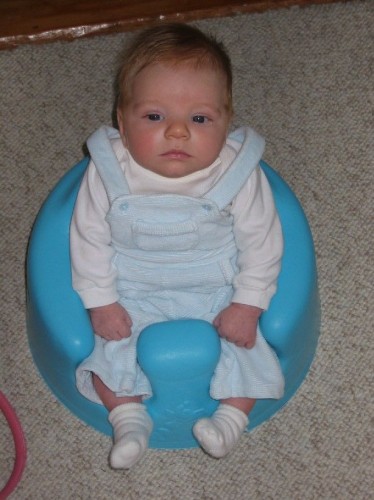
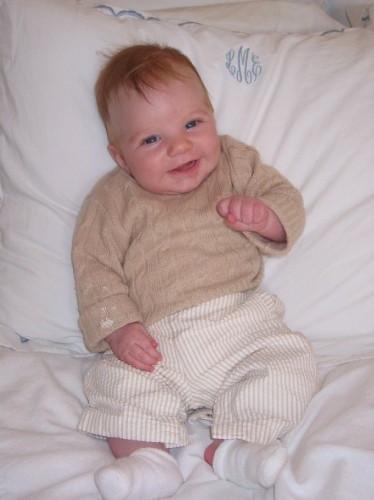
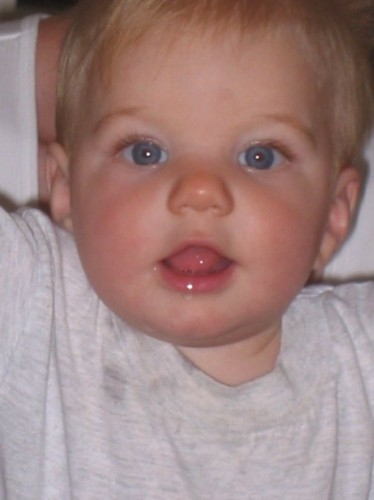
*attribution to Newman and Hank for the best Christmas card message ever.
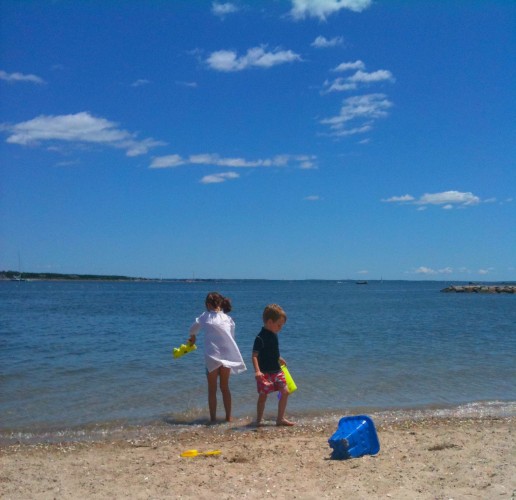 Emily (softly, more in wonder than in grief):
Emily (softly, more in wonder than in grief):



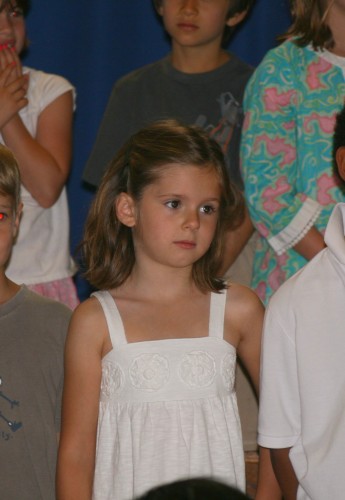
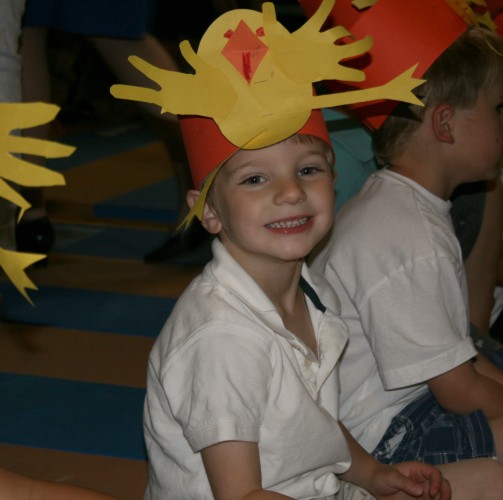 It is most certainly
It is most certainly